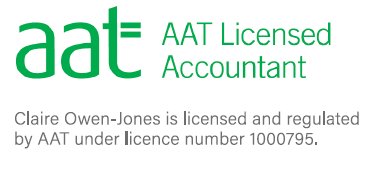IR35 in the name of the legislation that HMRC has created to crack down on contractors who should really be employees.
If you have recently set up a Limited Company and your business has only one client, or maybe a portfolio with one larger client, you might have heard IR35 being muttered by your fellow freelancers.
Whilst having one large client does not immediately equal IR35, it is always worth checking yourself against the rules to see if you believe you could be an employee in disguise.
You will hear HMRC referring to these “employee in disguise” Limited companies as Personal Service companies.
What is a Personal Service company?
Typically, a personal service company is a Limited Company that has one director and that director also owns all the shares.
The Limited Company will have no other members of staff, so it will be the Director themselves who will do the work. And this will be either directly with an organisation or through an agency.
So, because of this it won’t be a true business as such. It’s generally more like an individual housed within a Limited company wrapper.
Personal Service companies operate almost exclusively within the professional services. So, industries that trade in time and knowledge, such as IT or even nurses.
Why does HMRC not like Personal Service companies?
It may come as no surprise that a large part of the reason is rooted in tax.
For the owner of a Personal Service company, you can take a combination of salary and dividends and pay less tax than you would if you were an employee.
Over the years, with the introduction and then the subsequent reduction of the dividend allowance, the savings aren’t as great as they once were. However, it is still more tax efficient in a lot of cases, to trade through a Limited Company.
For the potential employer, they have benefited because they have been able to avoid paying tax, mainly the employers national insurance element, on your income.
In addition to the tax savings, there is less admin for them. They don’t have to worry about paying into your pension. Or giving you any holiday entitlement or sickness pay.
So, potential employers have benefited greatly from it. And contractors have typically excepted the downsides in exchange for paying less tax and possibly a slightly higher wage.
How will I know if I am a Personal Service company and will fall under IR35?
As business and contracts and every interaction you will ever have is different, there is not an easy yes or no question that you can answer which will confirm if you fall under IR35 or not.
I know a lot of people get nervous if their business only has one client. And whilst this may increase the possibility, it doesn’t immediately make you a candidate for IR35.
Instead, what you need to do is work through the criteria that might make you an employee.
If you can argue that you are a contractor for each one, HMRC might still question you, but you will be able to prove they are incorrect.
So, here we go:
1.Are you paid for your time or to deliver a result?
A nice easy place to start is to ask if the organisation you are working for is paying for your time or for an outcome?
When you are an employee you cannot send in a friend to do your shift for you if you fancy doing something else. Equally you cannot bring a friend in to work to help you out because you want to finish a bit earlier. This is because your employer is paying for you and your time.
If you are a contractor, then the organisation is paying for a result. Part of this means that if you are not able to undertake the work yourself then you are able to bring in someone else to replace you. Equally, you are able to bring in additional assistance to help should you need to.
So, if you are contracted to do work and the organisation would only accept you as the person who will undertake that work, you may be an employee.
2.Are you able to turn down work?
As a contractor you have the power to turn down any work that you do not wish to do.
The flip side to this is that the organisation you have contracted for is under no obligation to offer you any additional work.
You both work on a contract by contract basis that both can end once an agreed result has been produced.
As an employee, your employer is obliged to offer you work and you are obliged to do as the employer requests. This is because they are paying for your time rather than for you to do one task.
So, if there was a power cut in the office, for example, could you pack up and go home or would you be given additional tasks to fill your time until the end of the day? If it’s the latter, then you are possibly an employee.
3.Do you control how, when and where you do the work?
As a contractor you have been engaged to provide an agreed outcome based upon your expertise. This means that how, and to a certain extent, when you do the job is entirely up to you.
You have the power to use whatever software you want. Follow your own processes and methods. And generally use whatever tools you feel best suits the job in hand.
As an employee, your employer may control what, how, where and when work is done.
This means that if you turn up at the organisation, are given a uniform, some of their tools and told how they do this particular job, you are possibly and employee.
4.Can you make a profit (or a loss) on the job?
A contractor will typically quote on job by job basis. This means you can make more money if you are efficient and can lose money if the job overruns.
As an employee you are paid an agreed and regular amount, regardless of when and how a job is done. You will also benefit from income protections such as the National Minimum Wage and holiday entitlements.
This means that if you are paid a fixed hourly or day rate regardless of how long the job takes or how efficient or inefficient you are, this may mean you are an employee.
5.Are you part and parcel of the organisation?
You can be contracted by an organisation to work from them for long period of time. Possibly even indefinitely as is the case of bookkeepers and VA’s for example. Whilst this may make you feel like a regular fixture of the organisation, you will not receive any privileges for becoming so.
A long-term employee however, can get promoted, receive pay rises and be rewarded by additional benefits such as joining a pension scheme and having healthcare insurance or a company car.
So, if the organisation offers to pay you whilst you are off sick or on holiday. Or maybe offers you a bonus for completing the work. There is chance you could be an employee.
6.Do you have employee type benefits?
Contractors are unlikely to be entitled to any benefits. However, employees will be part of the pension scheme, have access to any canteen and sports facilities, car parking, and be invited to attend staff functions.
This means that if you are invited out for the Christmas party or leaving do’s, you may be considered an employee.
What are the penalties if you are caught under IR35?
If HMRC reach the conclusion that you are a disguised employee and fall under IR35, they can take your turnover and deduct 5% for allowed expenses and the remaining amount will be treated as your gross earnings as liable for income tax and national insurance.
So, effectively your Limited Company turnover will become your gross employment income and taxed as such. They can also backdate this over several years.
What should I do if I feel I fall under IR35?
If you have worked through the above criteria and have reached the conclusion that you should be an employee, it will be worth taking to Google or a site such as Contractor Weekly and finding yourself an accountant who specialises in contractors and specifically IR35.
There are massive tax consequences to IR35, so you need to work with an expert.
And that expert is not me.







